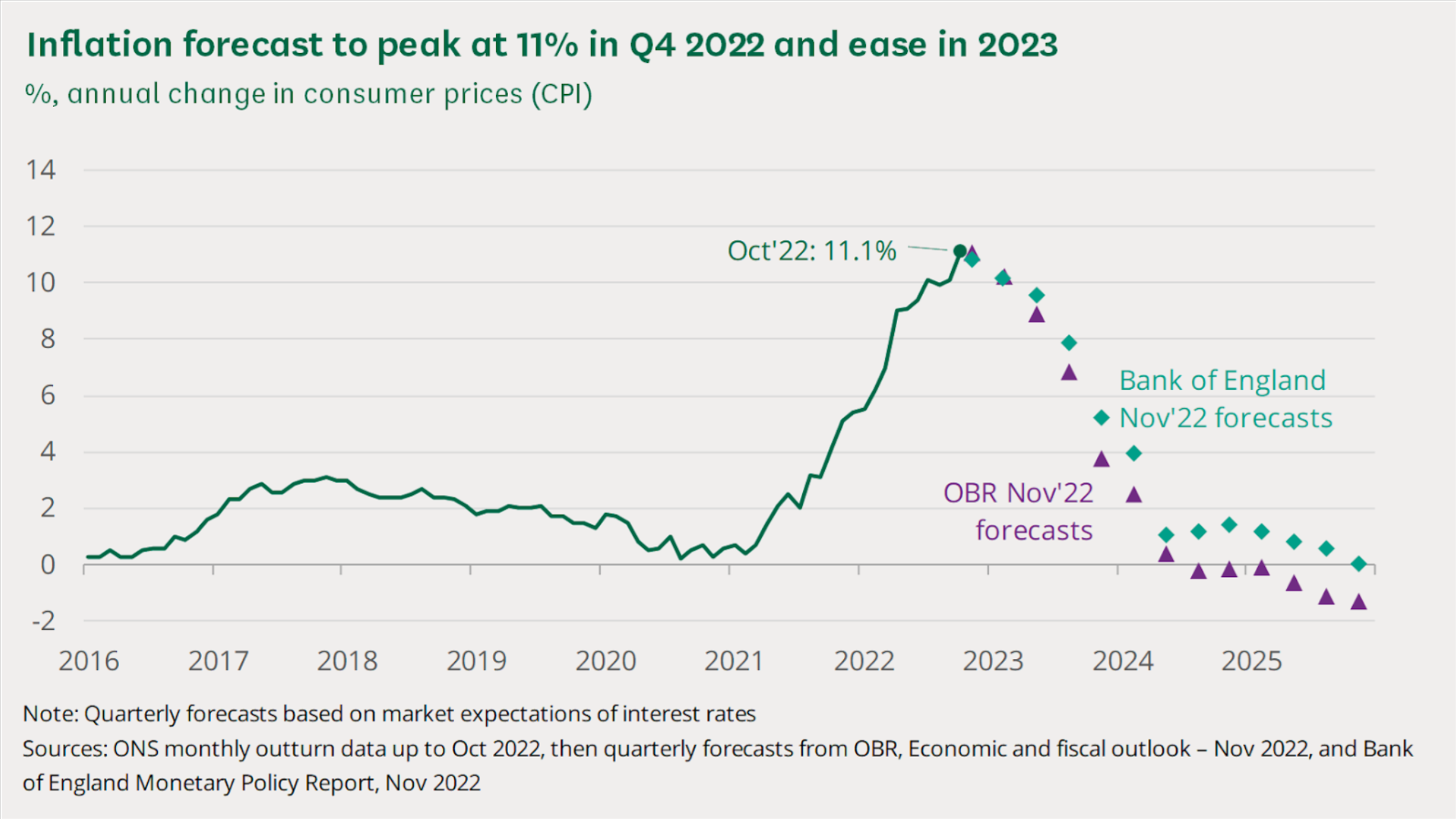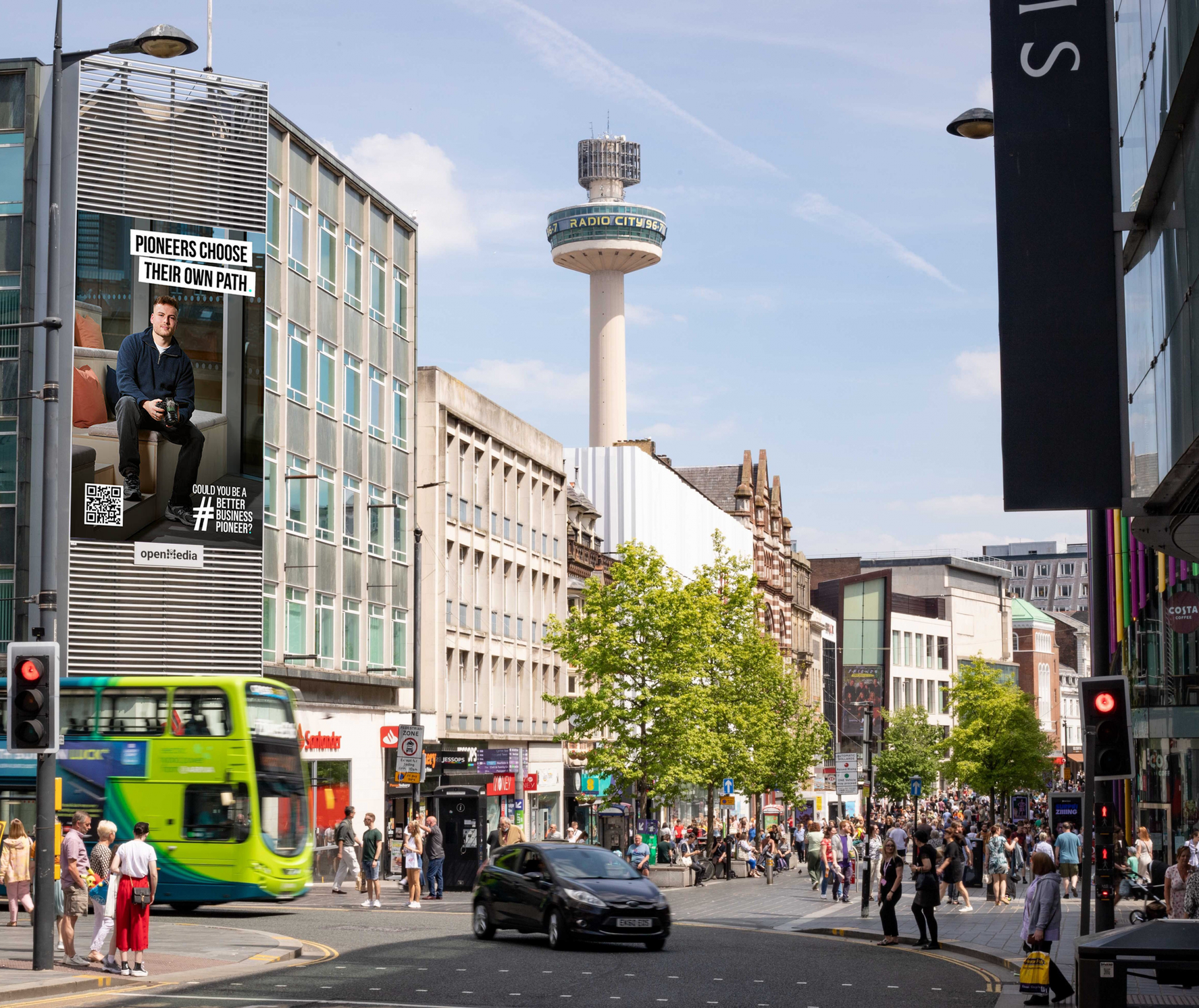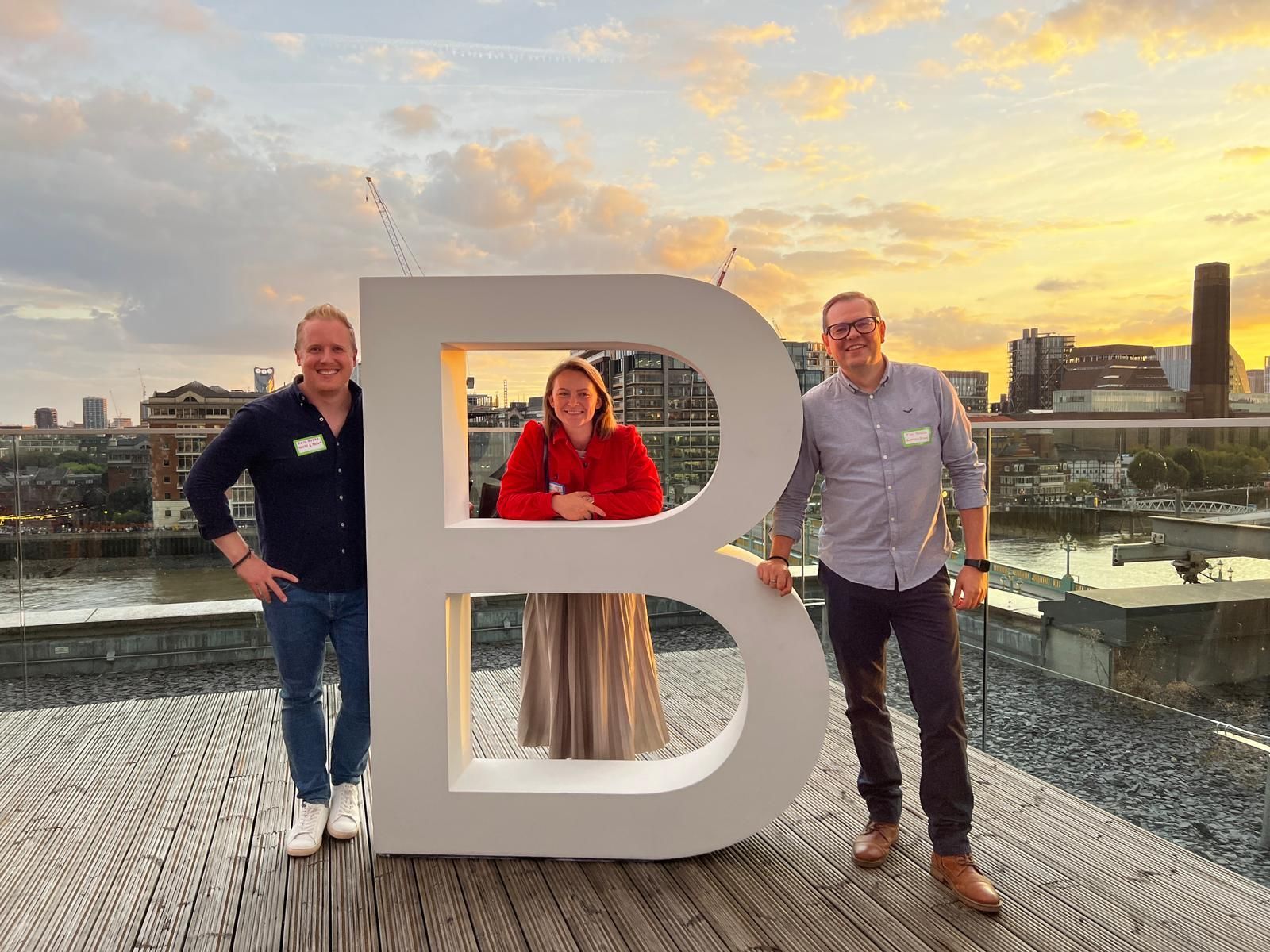Thriving in Tough Times: How Purpose-Driven Businesses Can Survive a Recession
Following a quarter of negative economic growth and a challenging few years for the UK economy, we are now considered to be in a recession. Chancellor Jeremy Hunt made the announcement during the Autumn Budget, while the Office for Budget Responsibility also confirmed the statement, saying that the economy is once again shrinking.
No doubt you’ll all remember the 2008 economic crisis, in which GDP fell by over 7%. It was a challenging time for individuals, families and businesses alike, so with reports indicating that 2023’s downturn may be the longest recession on record, how can we as purpose-driven businesses brace ourselves for what the Bank of England is describing as “challenging times ahead”.
Could purpose and sustainability as a core business strategy be the key to surviving a recession?
Let's start by looking at the basics.
the what & why of a recession
A recession is a period of at least two successive quarters of negative economic growth, as measured by GDP. With the UK economy shrinking by 0.2% between July and September 2022 and the Bank of England confirming that the economy shrank again between October and December, we are now officially in recession.
We are here due to a number of factors, and it won’t be surprising to hear that the Covid-19 pandemic has played a huge part. After almost three years of living with the disease, combined with almost a year of conflict in Ukraine, the UK has been plunged into the most worrying cost of living crisis since the post-war 1950s.
COVID has put an immense strain on the UK economy, and this can be pinpointed to an overall reduction in employment (affecting personal income and therefore taxation), disruptions to supply chains, transportation and manufacturing, and £105bn worth of tax cuts and spending increases.
Meanwhile, Russia's invasion of Ukraine has led to significant increases in food, fuel and energy prices, leading to households either cutting back spending or struggling to afford the basics. That’s not to mention an alarming increase in the use of foodbanks and other critical support networks.
According to the Office for National Statistics, 91% of adults in Great Britain reported an increase in their cost of living between October and November this year.

what does a recession mean for businesses?
In its simplest form, a recession leads to a decline in customer spending and therefore reduced business profits. In-turn, employees are directly affected, with job losses, reductions in benefits, and a variety of operational changes like pay freezes or reduced hours. In worst-case scenarios, the combination of poor financial performance and reduced demand can lead to many businesses being faced with the possibility of insolvency.
On the other hand, recessions can present businesses with new opportunities and avenues for growth. Forward-thinking companies may even emerge from a recession in a stronger and more resilient position than when they went in. In a future post, we will look at some of the actions a business can take to prepare itself for a recession and not only survive one, but thrive long after it.
For now, however, let's explore whether purpose-driven businesses have an advantage over their ‘standard’ or 'profit-first' B2B or B2C counterparts.
what is a purpose-driven business?
A purpose-driven business is one that places a greater emphasis on the role it plays in making the world a better place. This might sound a bit intangible at first, but here’s an example that we can all relate to.
- A profit-driven business: Nestlé
A commercial enterprise in the food and beverage industry with the sole aim of selling their consumable goods to customers. Their purpose is to manufacture and sell their product, and make a profit for their shareholders.
- A purpose-driven business: Patagonia
Also a commercial enterprise selling consumables. But, the company positions itself with a dual purpose; to manufacture and sell products (outdoor apparel) in a way that is sustainable and fair, whilst simultaneously supporting self-funded and self-maintained causes that focus on improving the world around it. (Patagonia made headlines in September for taking purpose to the next level and making Earth its only shareholder.)
So, what makes Nestlé not a purpose-driven business? After all, its tagline is ‘Good food, good life’ (lol). Is Nestlé striving for a better world through cereal and chocolate milk? That’s another blog in itself, but for the most part, no it is not. Nestlé’s brand reputation, social impact and organisational footprint paint a very traditional picture of a business compared to that of a purpose-driven business.
Nestlé is seen by many as an unethical company because of its alleged use of child labour and manufacturing processes that are damaging to the environment, doing little to offset their immense impact on the planet. That’s not to mention the overly inflated salaries for top-level executives, and shareholders with questionable business interests.
A brand like Patagonia turns all of this on its head, being incredibly mindful of how it manufactures and distributes its products, how it does business, how it treats its staff, and who or what it supports when it comes to wider sustainable efforts. (Read more about Patagonia in our Better Brands series,
here.)

what makes purpose-driven businesses more recession proof?
You don’t need to be an economist to understand that a £300 raincoat could be seen as an extravagant purchase during a cost of living crisis. In fact, some people wouldn’t even dream of spending a quarter of that on a coat, which is entirely okay. So how does a business like Patagonia weather the storm when consumers are drastically cutting their spending?
The secret is endurance. Patagonia has created an enduring brand, and this works twofold:
- Its customers remain loyal, and do so thanks to the company's efforts to be a better business. If they’re not buying that raincoat today due to a downturn in work or a rise in living expenses, maybe they’ll buy it a year from now.
- Its products are well made. Sure, Patagonia charges a significantly higher price point than the likes of Peter Storm or Next, but its products are manufactured with longevity in mind. Quite simply, customers invest in brands like Patagonia, and Patagonia sees this reflected in its sales figures, despite not seeing customers returning for several years.
Thanks to this business model, purpose-driven organisations can more easily forecast for the future. They already have a loyal customer base who won’t necessarily be tempted away by Black Friday deals on poorly made products, and their overall financial position is healthy thanks to the brand reputation and loyalty they’ve already built.
what about smaller businesses? we aren't all patagonias...
You’ll have to forgive us for using such a wildly successful organisation as an example. Patagonia has obviously set a great story for many to follow. Furthermore, its business model is a relatively easy one to break down when it comes to purpose vs brand vs performance.
But what about businesses that are far smaller? Businesses like us, and the many others we work with, speak to and collaborate with? Will we survive a recession by default, simply because we have our eyes firmly fixed on our purpose, people and the planet?
Not necessarily. We wish it was that easy. Instead, it’s about the story you tell, the authenticity in your brand, and what you can promise to your customers. Plus, another secret ingredient that we’ll touch upon shortly.
A purpose-driven business is one that acts with integrity. Without an authentic brand, you’ll soon be rumbled as a fraud or a greenwasher. So that already eliminates a huge swathe of businesses who think it’s enough to add a ‘Sustainability’ or 'ESG' page page to the footer of their website. Only the honest brands will shine when it comes to talking the talk, because customers are smarter than ever, and when they’re about to invest in a product or service from a self-styled purpose-led business, they want to see that you also walk the walk.
Aside from customers voting with their feet, it’s also important to understand how your product or service can stay relevant during a time when every penny is being scrutinised. This is a bit of a ‘one solves the other’ situation; if your product or service offers a better alternative to something else on the market,
PLUS your brand acts with integrity, honesty and sustainability,
AND you can offer that at a competitive price point, that’s usually enough to win and retain customers who don’t mind paying a fraction more for something immeasurably better.
people are more mindful than ever before
It’s easy to say that during a recession all luxuries go out the window. Whilst true in many cases, purpose-led products and services aren’t necessarily luxuries. As a sustainable marketing agency with regenerative business practices at our core, we offer an alternative view to many other brand and marketing agencies, but that doesn’t make us a luxury brand; it makes us a smarter choice. As a toilet roll manufacturer,
Who Gives a Crap offers a transparent supply chain and a promise of a sustainable product, but that doesn’t make them an extravagant or luxury purchase.
In difficult times, it feels good to vote with your feet. Many of us are simply ‘sticking it to the man’ by investing in products or services that we know will last, satisfy us and most of all, reassure us.
According to a recent article in Forbes, just two years ago, only 58% of consumers across all generations were willing to spend more for sustainable options. Today, nearly 90% of Gen X consumers said that they would be willing to spend an extra 10% or more for sustainable products, compared to just over 34% two years ago. (Although, be wary of the ‘Attitude-Behaviour’ gap, which you can read more about in our
Ultimate Guide to Sustainable Marketing,
here.)

the secret sauce: safety in numbers
Purpose-led businesses rarely rise alone. With such a focus on lone entrepreneurship and prolific, outspoken CEOs (Musk, Trump, Bezos et al), it’s easy to forget that big business doesn’t have to be about egos and soundbites. For us, one of the biggest drivers in being a purpose-led business is the wonderful community around us. This may be surprising to hear for someone in a more traditional, old school business. But honestly, there is very little competition, rivalry or drama in sustainable circles. (Note that we said "very little", not "none"!) The people who are in our circle of trust (Meet the Parents, anyone?) are in it because they share our ethos of collaboration over competition, and our vision of a better world in which every business is regenerative - e.g. they give back more to society and the planet than they take.
Naturally, this unified approach makes us stronger. We can support one another, whether that’s through partnerships and collaboration, referrals, joint ventures, investment or even just social events. It really does pay to work together. This is almost unheard of in other industries, but we do it because we share a common goal, and that’s our secret sauce to surviving a recession: we are in it together.
Perhaps now is a good time to give a shout out to some of our favourite collaborators and partners:
Hannah Cox and
The Better Business Network;
Adam Bastock and
Small99 and
People, Planet, Pint (watch this space for more Farnham events in 2023); and
Michelle Carvill, Gemma Butler and the
Can Marketing Save the Planet? community.
These are all great people, communities and resources to check out if you don't already know them or follow them.
this is all great, but... how?
If this is all feeling a bit vague for you, don't worry: we get it. We’re certainly
not offering any guarantees that 2023 will be your best year ever simply because you’re the right kind of business. But we
are confident in saying that consumer spending models, economic data and marketing patterns do strongly suggest that meaningful brands with purposeful products do endure downturns and do remain front of mind with consumers and customers alike.
So, what are some of the key things that you can do as a business that will ensure you remain relevant and healthy through a heavy recession? Here are a few ideas:
1. Understand your numbers.
This is crucial for any kind of business, particularly if you’re small or starting out. It’s absolutely key that you understand the financial position that you’re in — your cash flow, your costs, your forecast and your pipeline. There are some great experts out there. Better still, there are some superb experts out there who specialise in supporting purpose-led businesses.
2. Keep your customers close.
The worst thing you can do during a time like this is to go quiet. Keep your customers informed, continue the conversation, and most of all, read the room. It’s important that your comms and your wider marketing efforts reflect the position that many of your customers will be in. Be empathetic and supportive, and do it with authenticity.
3. Don't stop spending.
Following on from the above, don’t take your foot off the gas when it comes to marketing. Just because your customers or clients aren’t spending with you right now, it doesn’t mean that they won’t in the future. Your marketing budget should support the wider narrative that your product is a good investment if not now, then later. And remember: thanks to the age of digital marketing, there's plenty you can do for little or no financial cost at all. For more, watch the short video below.
4. Pivot, but not too much.
If COVID taught us anything about business, it’s that we must change or transform to stay ahead. During a recession, it would be unusual to carry on as normal. Think about how your product or service can be adapted to suit a customer with less money or less willingness to spend. Perhaps this is converting your product to an online offering or a creative partnership with another brand. There’s a lot of opportunity here and it’s certainly worth investing the time in discovery meetings to unearth new ideas. Don't feel pressurised into taking things too far though and giving up your dream of running a marketing agency to start running a sock subscription service instead.
It's important to mention here that we are walking the walk on this, instead of just preaching at you. Avery & Brown is a small business with typical resource and budget constraints, but we're not going to stop or even slow down on our marketing activity during this tough period. Far from it! (If we're still going strong after the recession, we'll come back here and leave a smug 'told-you-so' emoji.)
conclusion: purpose alone isn't enough, but it's a great starting point
While purpose alone may not be the key to weathering an economic storm, there is evidence to suggest that purpose-driven businesses may be more resilient and better able to adapt to changing circumstances.
Yes, businesses must also have a solid plan and the right strategies in place to navigate a recession. But having a clear purpose can help to provide direction and motivation, and may even give companies an edge in times of uncertainty.
Before we close in for the big sell, we'll leave you with this thought:
"Certified B Corporations, which balance profit with societal benefit, were 64 percent more likely than other businesses to survive the 2008-09 recession."
Source: Means & Matters from Bank of the West
A powerful fact, right? But one which makes perfect sense when you consider that 'sustainability' is being valued - demanded even - by investors, that B Corps are at the front of a global movement, and that they make ideal suppliers. You can read more about this
here.
Is your business ready for everything that 2023 is going to throw at it?
Don't worry, we wouldn't just leave you hanging.
If you'd like to tick at least one action off your list for doing whatever you can to help your business survive - and hopefully thrive - through 2023 and beyond, please drop us a line. Avery & Brown is a trusted sustainable marketing partner to purpose-driven businesses, and we don't just talk a good game; we walk the walk.
Our brand strategy and marketing audit could be exactly what you need to help you start 2023 with a solid foundation for growth and success. It is a low-cost, high-value piece of work that looks at, among other things: your business' purpose, mission, culture, visual identity, brand messaging and marketing and communications output. The audit report ends with a list of clear recommendations which, if followed, will save you time and money, and help you get to where you want to be.
Speak to us today and let's make a plan to ensure that your purpose-driven business is another recession-proof success story.
Sources and further reading:
- Recession looms as UK economy starts to shrink
- What is a recession and how could it affect me?
- How Do Recessions Impact Businesses?
- Sustainability in Times of Recession: Five Ways to Bring Clarity to Your Sustainability Strategy
- Economic Consequences of the COVID-19 Outbreak: the Need for Epidemic Preparedness, 2020
- The long-term effects of the pandemic: insights from a survey of leading companies, 2020
- The Impact of Corporate Sustainability on Organizational Processes and Performance, 2014
- Economic growth will continue to provoke climate change, 2022
- Consumers Demand Sustainable Products And Shopping Formats
- What actions are people taking because of the rising cost of living?
- The FOUR Reasons B CORPS Are the BUSINESS Model of the Moment
Share the love


















